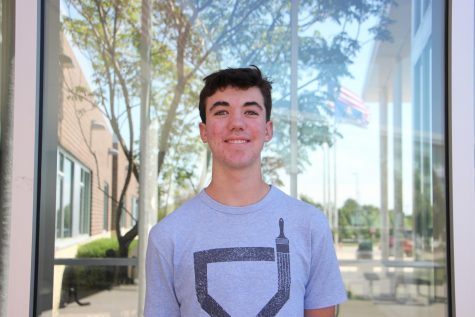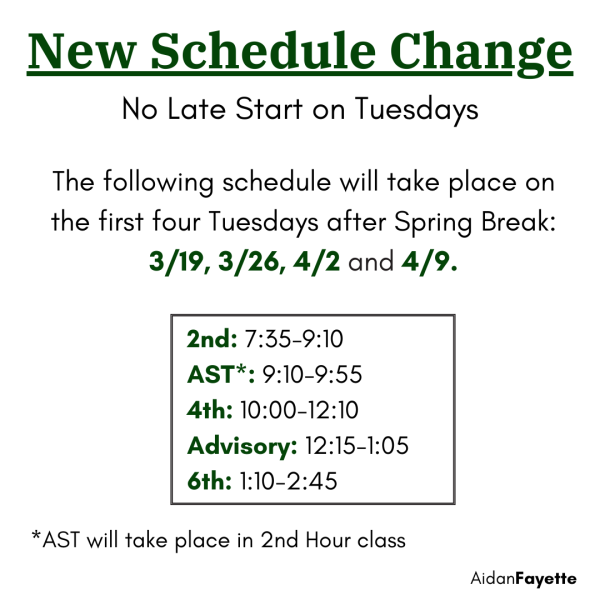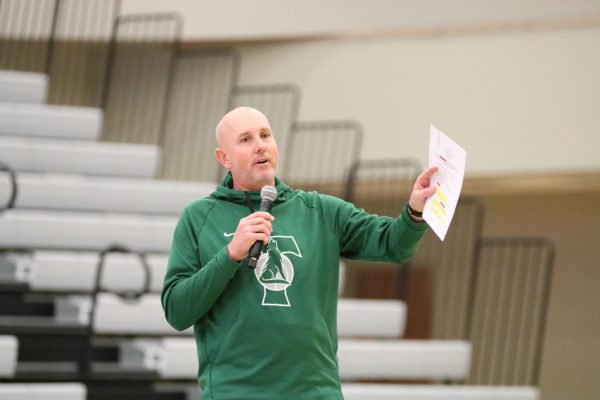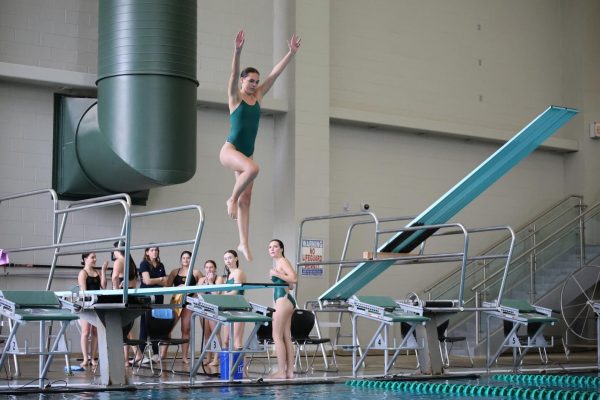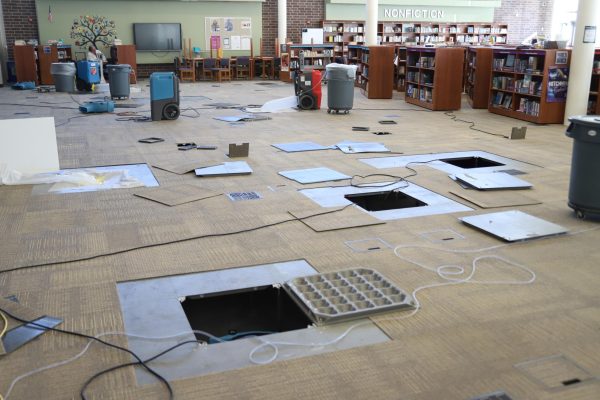A Blow to the Budget
District implements drastic budget changes for next year to combat $4 million deficit
The district will begin next school year with a $4 million budget shortfall. In order to resolve the budget deficit, the district asked families and staff for their opinions on what they value most versus what could be cut from next year’s budget.
After many Board of Education meetings, district chief communications officer Kristi McNerlin said the district outlined a plan to save $4,237,000 next year, but it did not come without real consequences.
“We knew that with $4 million we needed to go to the people and ask for ideas, and we went to our staff and we went to our community and we said, ‘we need your help problem solving,’” McNerlin said. “We were looking for budget reductions to try to avoid anything that would impact [the students’] learning and [the students’] experience.”
The most noticeable difference will be a cut to the district’s non special-education paras, which includes library paras and in-school suspension coordinators. Assistant principal and director of curriculum and instruction Jason Peres said the budget put everyone in a difficult position, but the cuts were necessary.
“I would like to think that we’ve had a choice [on budget changes],” Peres said. “But it may just be to the point where we have to make some cuts on something that nobody wants to, but if we don’t do it, as a school district we can’t operate without the funding, so the funding necessitates that we make some tough decisions.”
McNerlin said the $4 million deficit is a result of many issues, including COVID-19 expenses and enrollment declines.
“There were less students, food service made less money, ticket sales [declined] because we didn’t have people at the events to get into football games and things like that … so we lost some revenue that way,” McNerlin said. “There were a variety of things that also added to a loss in revenue, facilities not being rented because we had facilities closed for a while, and that kind of added up and that was another component.”
The district did receive $1.4 million in Elementary and Secondary School Emergency Relief funding from the federal government, but McNerlin said that funding wasn’t near enough to cover any real budget shortfalls.
“We did not receive as much [federal relief] as many of our other districts because they based the distribution of those funds on the number of students who are in Title schools, which means they are more free and reduced, and we don’t have many schools that receive those funds,” McNerlin said. “There are some districts who got 10 and 15 times that amount just because they have more students on free and reduced. We would argue that COVID does not discriminate; it doesn’t matter what your income would be, COVID is still something that could impact students and the school district.”
Peres said when it comes to Southwest, the budget deficit really didn’t cause as much of an impact as in other schools and at the district level.
“We may not have some improvements that we wanted to have, you may not be able to upgrade certain areas of your school, things of that nature,” Peres said. “We have some positions where we didn’t fill them, like some people are retiring and we’re just not going to fill that, but I don’t necessarily think that’s a budget issue, that’s an enrollment issue.”
McNerlin said another hit to the budget came when the district decided to create a virtual education program for students in response to the pandemic.
“Even though part of our strategic plan was to work on some type of virtual offering for students, COVID happened and that accelerated that,” McNerlin said. “We literally had to build what would normally take at least a year to build, [it] had to be built very quickly, so that took paying staff, our teachers to build those courses … and then a lot of the other costs that go along with building a virtual program, so there was some significant cost.”
Senior Jordan Schneider said the school district did not handle the deficit in the correct manner, and said he would have preferred to see cuts to other parts of the school besides the library and other paras. Former library para Julie Hill became the school registrar this year, while current library para Teresa Haney’s position will not be filled next year. This leaves the library with two library media specialists to handle all responsibilities.
“I think there are better areas to cut than the library because it’s not just for books, it’s for all kinds of things that students need,” Schneider said. “It’s going to be harder for students to get assistance in there. It’s like a universal study hall for anyone and not just people who have free time to kill.”
There are many opinions on what should have been cut, and no budget reduction will please everyone, but Schnieder said he doesn’t think the library receives the recognition or resources it deserves.
“I think it’s honestly an overlooked department,” Schneider said. “Timber Time has always been hectic with four or with three [staff members]. You have 15 students needing help, and each one of them has a unique problem, [and if] you only have two staff members, only one of those is going to be available because one has to man the checkout.”
Even if the cuts don’t please everybody, Peres said the district will continue to give all stakeholders a voice and err on the side of students.
“Knowing what we value most, that will make their decision a little easier, but in the end, they’re going to have to make tough decisions,” Peres said. “They’re going to tell us what to do and we’re just going to have to do it.”
Peres said the budget cuts may or may not be permanent, but in order to ensure the district doesn’t find itself in this situation again, it will take more than the school district to change education funding.
“Once we’re through this — these budgetary constraints — I think things are going to get better,” Peres said. “Hopefully our state will fund education at the level where we won’t have to make these tough decisions going forward.”




